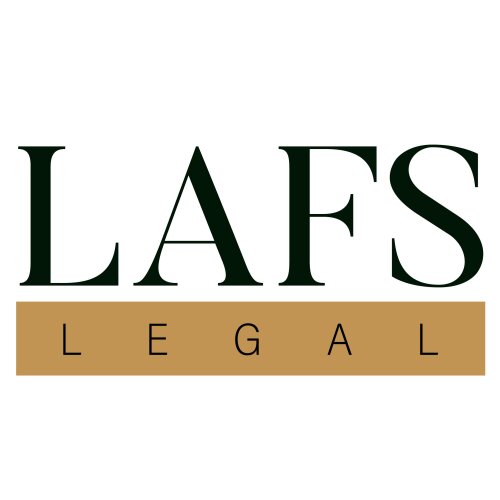Best Retirement Visa Lawyers in Bangkok
Share your needs with us, get contacted by law firms.
Free. Takes 2 min.
List of the best lawyers in Bangkok, Thailand
Legal guides written by SIAM LEGAL INTERNATIONAL:
- Defamation Laws in Thailand: Criminal Charges and Civil Suits
- The State of Thailand’s Long-Term Resident (LTR) Visa Program in 2025
- The Penalties Of Not Filing Your Income Tax Return As A Foreigner In Thailand
Legal guides written by Smart Legal Solutions:
- Main Legal Measures to Protect Foreign Investment in Thailand
- The importance of the geographical indications for the Thai economy
Thailand Retirement Visa Legal Articles
Browse our 3 legal articles about Retirement Visa in Thailand written by expert lawyers.
- How Can I Renew My Visa in Thailand? A Comprehensive Guide for 2024.
- If you live in Thailand and want to renew your visa, you should understand the procedure, the many kinds of visas available, and the documentation you'll need. Visa renewals are required to remain lawfully in the nation, whether you are on a tourist visa, a work visa, a retirement visa,... Read more →
- Different Types of Long-Term Visas in Thailand
- Looking to make the Land of Smiles your long-term home? Thailand offers a variety of long-term visa options catered to your needs, whether you're settling down with a Thai spouse, retiring by the beach, investing in local business, or enjoying the perks of the Thailand Privilege program. Here's a brief... Read more →
- On Becoming a Permanent Resident in Thailand
- If you plan on residing in Thailand for an extended period, becoming a permanent resident may be an option over applying for a visa or annual renewal. Once a year, the Immigration Department begins accepting permanent resident applications, usually from October to December; however, this year (2019), the application window... Read more →
About Retirement Visa Law in Bangkok, Thailand
A retirement visa, officially known as the Non-Immigrant O-A Visa, allows foreign nationals to reside in Thailand after retirement. Bangkok, being the capital and a major hub for expats, is a popular location for retirees. The retirement visa is intended for individuals aged 50 and above who wish to stay in Thailand for extended periods. It requires proof of financial stability, health insurance, and adherence to specific immigration regulations. Understanding the intricacies of the retirement visa process is crucial for a seamless relocation to Bangkok.
Why You May Need a Lawyer
While obtaining a retirement visa can often be a straightforward process, there are situations where legal assistance might be necessary:
- Complex Financial Documentation: Ensuring that all financial documents meet the Thai government's requirements can be challenging, particularly if your assets are spread across multiple countries.
- Visa Denials or Problems: If your application is denied or if you encounter issues with visa extensions, a lawyer’s expertise can help resolve these matters efficiently.
- Understanding Local Regulations: Navigating the ever-evolving immigration laws in Thailand can be difficult without professional guidance.
- Health Insurance Compliance: A lawyer can assist in ensuring that your health insurance policy meets the specific criteria mandated by Thai authorities.
- Appealing Decisions: If an application necessitates an appeal, a legal expert will be invaluable in constructing a well-founded argument.
Local Laws Overview
The key aspects of Thai law relevant to obtaining a retirement visa include:
- Age Requirement: Applicants must be at least 50 years old.
- Financial Requirements: Proof of either a monthly income of at least 65,000 THB or a Thai bank savings of 800,000 THB is necessary.
- Health Insurance: Recent regulations require applicants to have health insurance coverage of at least 400,000 THB for inpatient care and 40,000 THB for outpatient care.
- Police Clearance: Applicants from certain countries may need a police clearance certificate.
- Immigration Regulations: Adhering to the “90-day reporting” rule is mandatory, requiring you to report your address to the Immigration Bureau every 90 days.
Frequently Asked Questions
What is the minimum age requirement for a retirement visa in Bangkok?
Applicants must be at least 50 years old to qualify for a retirement visa in Bangkok, Thailand.
Do I need a health insurance policy for a retirement visa?
Yes, applicants need to have a health insurance policy that meets the specified coverage requirements outlined by the Thai authorities.
Can I work in Thailand with a retirement visa?
No, a retirement visa does not permit any form of employment in Thailand.
How long is a retirement visa valid?
Initially, a retirement visa is valid for one year, but it can be renewed annually.
Is there a specific financial requirement for obtaining a retirement visa?
Yes, you must have a monthly income of at least 65,000 THB or 800,000 THB in a Thai bank account.
Can I apply for a retirement visa before arriving in Thailand?
Yes, you can apply for a Non-Immigrant O-A visa at a Thai embassy or consulate in your home country before traveling to Thailand.
Are there any rules about how often I must report my location while living on a retirement visa?
Yes, you must report your address to the Immigration Bureau every 90 days, a procedure known as 90-day reporting.
Can the retirement visa be converted to a different type of visa?
Generally, the retirement visa is non-convertible to other types of visas. Consult with immigration authorities or a lawyer for specific cases.
What happens if I need to leave Thailand temporarily?
You must apply for a re-entry permit before leaving to maintain your retirement visa status.
Do I need to provide a police clearance certificate for a retirement visa?
Depending on your country of origin, you may need to provide a police clearance certificate as part of your application.
Additional Resources
For further assistance and clarifications, consider contacting these resources:
- Royal Thai Embassy or Consulate: Seek initial information and application assistance from your local Thai diplomatic mission.
- Thai Immigration Bureau: Offers detailed guidelines and updates regarding immigration laws.
- Expat Communities: Online forums and local expat groups can provide first-hand experiences and advice.
- Legal Firms Specializing in Immigration: These firms can offer personalized guidance and support throughout the application process.
Next Steps
If you are considering applying for a retirement visa in Bangkok and require legal assistance, follow these steps:
- Research: Gather all required documentation and familiarize yourself with the visa requirements.
- Consultation: Consider scheduling a consultation with an immigration lawyer to assess your situation and receive personalized advice.
- Engage Legal Services: If necessary, hire a lawyer to assist you with the application process, document preparation, or any issues that arise.
- Stay Updated: Regularly check for any changes in immigration policies or requirements to ensure your compliance.
Lawzana helps you find the best lawyers and law firms in Bangkok through a curated and pre-screened list of qualified legal professionals. Our platform offers rankings and detailed profiles of attorneys and law firms, allowing you to compare based on practice areas, including Retirement Visa, experience, and client feedback.
Each profile includes a description of the firm's areas of practice, client reviews, team members and partners, year of establishment, spoken languages, office locations, contact information, social media presence, and any published articles or resources. Most firms on our platform speak English and are experienced in both local and international legal matters.
Get a quote from top-rated law firms in Bangkok, Thailand — quickly, securely, and without unnecessary hassle.
Disclaimer:
The information provided on this page is for general informational purposes only and does not constitute legal advice. While we strive to ensure the accuracy and relevance of the content, legal information may change over time, and interpretations of the law can vary. You should always consult with a qualified legal professional for advice specific to your situation.
We disclaim all liability for actions taken or not taken based on the content of this page. If you believe any information is incorrect or outdated, please contact us, and we will review and update it where appropriate.

















